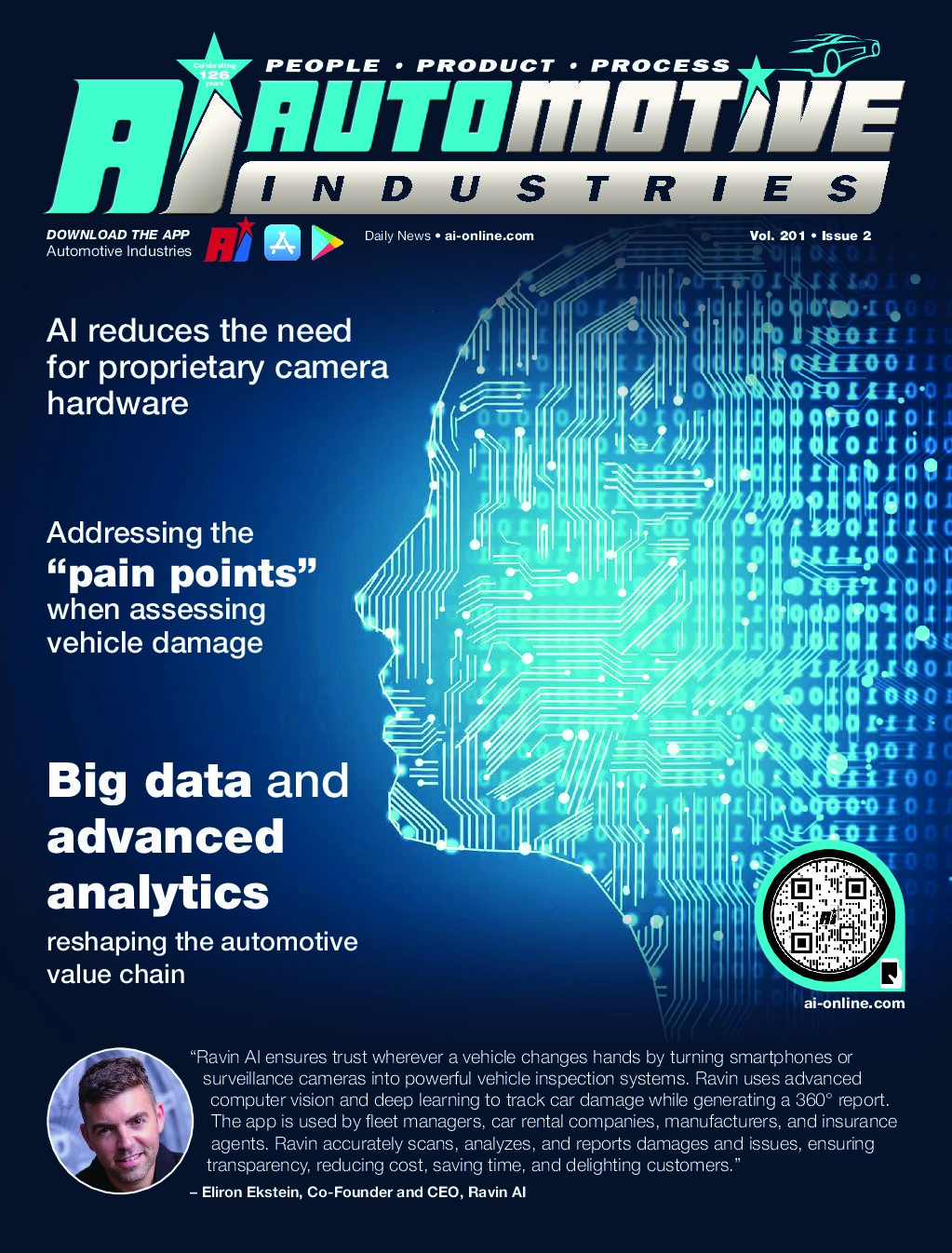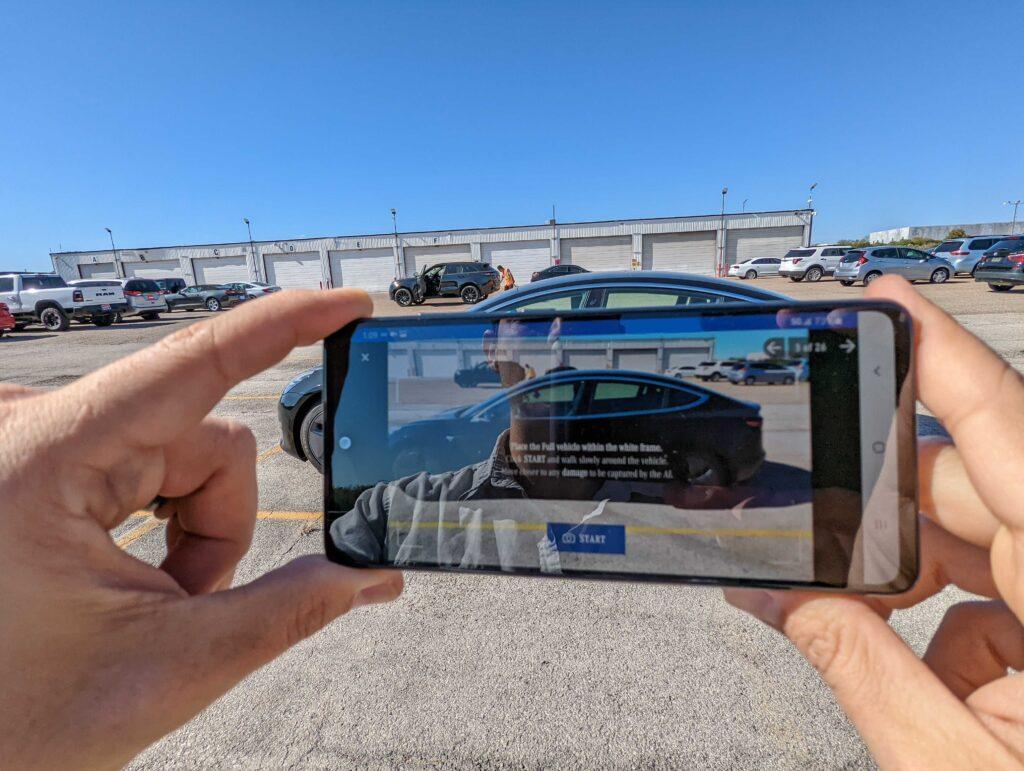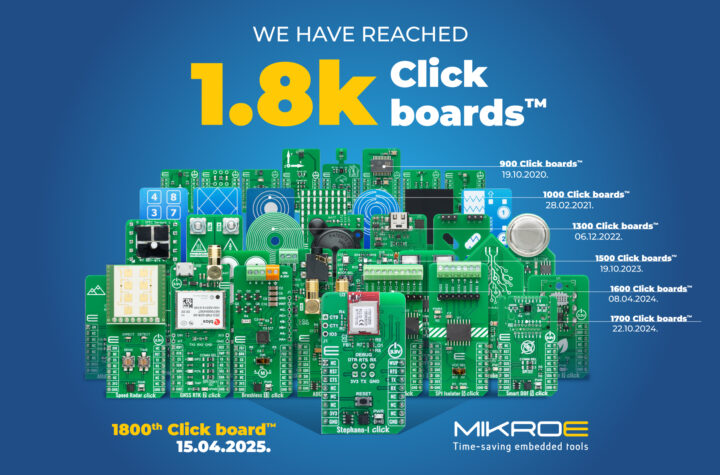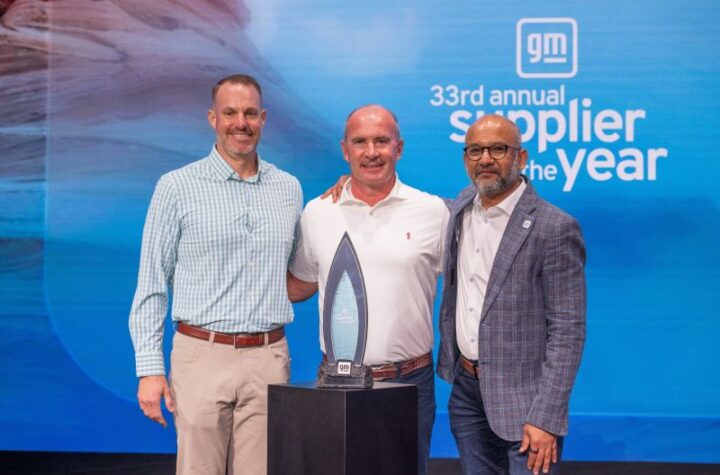
Concepts like big data and artificial intelligence (AI) have become as much a part of the automotive language toolbox as carburetors and ignition points once were.
The automotive industry is uniquely positioned to capitalize on the benefits of AI, both in the way consumers interact with their vehicles as well as in how companies can incorporate software solutions into daily transactions.
Israeli firm Ravin AI is an international provider of automated artificial intelligence solutions for vehicle inspections serving a diverse range of fleet, insurance, and remarketing customers around the world.
Unlike most other marketplace solutions, Ravin does not require its customers to purchase or install dedicated hardware but rather leverages standard mobile phone and CCTV camera technology.
Early in 2022, Ravin announced the launch of a new inspection application called “Inspect Trade” that helps car dealers generate consistent condition reports of new vehicles when they are delivered, as well as grade and price used cars instantly.
“Ravin is continuing to build out digital vehicle inspection tools at a rapid pace, and we’re happy to now offer a solution that specifically addresses some of the pain points that car dealerships have when it comes to inspecting and assessing used cars,” said Eliron Ekstein, co-founder and CEO, Ravin.

“Enabling dealers to leverage AI technology from their mobile phones to get an accurate picture of the condition and value of their assets, not only saves them significant time and money, but also allows them to convey the realistic pricing on cars to customers, which ultimately builds trust.”
In June 2022, the company announced a European patent for its Vehicle Damage-Finder Stationary Modeling System. The technology uses stationary cameras to capture a car’s image and provide a comprehensive vehicle damage report by cross referencing a vehicle with its computed model.
This enables the inspection of individual parts of a moving vehicle and increases report accuracy without limiting image taking angles, ultimately leading to improved fleet management, transparent car rental and repair shop experiences, faster and more reliable insurance claims, and fairer used car prices.
The patent includes Great Britain, Germany, Italy, France, Spain, and is the first-of-its-kind in the field of AI-powered visual inspection.
One of the biggest beneficiaries for Ravin’s AI solutions is the auto insurance industry.
The auto insurance industry has already embraced big data in managing risk, underwriting, and assessing the driving performance of policy holders. Many drivers in the US are familiar with the usage-based insurance offered by providers such as Progressive’s Snapshot program.
“By analyzing customer characteristics, auto insurers are also better at pricing insurance coverage, so it accurately reflects the level of risk a customer presents.
“One very promising area is taking unstructured data such as images or videos of damage and converting these data into structured insights, to simplify the underwriting and claims processes.
“Auto insurers can achieve the ‘holy grail’ of straight-through-processing, where claims can be settled without the need for human intervention and manual processing,” says a statement from Ravin AI.
Ravin AI was founded in 2018 by Eliron Ekstein and Roman Sandler. Automotive Industries caught up with Eliron Ekstein, co-founder and chief executive officer, Ravin AI.
AI: How is AI impacting every element of the way we interact with our vehicles?
Ekstein: Big data and advanced analytics are reshaping the entire automotive value chain from design, production and marketing, to operations, maintenance, resale and eventually disposal, and recycling.

Connected cars, which utilize bi-directional data communication, are now generating over 1TB of data for every day they’re driven. That’s enough to fill over 30 iPhone 7s every day!
Vehicle sensors gather structured, unstructured, and semi-structured data. Then it’s the job of data scientists and business intelligence analysts to write algorithms which turn that data into useful information. Even now, we’re only scratching the surface of what is possible today and will be possible over the next decade.
AI: How was digitization of vehicle ownership and management increased with AI solutions?
Ekstein: We are witnessing an exhilarating time in the automotive industry. Artificial intelligence and information-centric technologies (such as big data), help individuals and companies incorporate software solutions into daily transactions.
Consumers and users have more knowledge about their purchased, rented, leased, borrowed, or even car-sharing vehicles, than ever before. Many of these automotive start-ups have become or are becoming globally successful companies while advancing and changing the industry at large.
AI: How has increased digitization in the automotive insurance space changed the sector?
Ekstein: Auto insurance has already embraced big data in managing risk, underwriting and assessing the driving performance of policy holders. Many drivers in the US are familiar with the usage-based insurance offered by providers such as Progressive’s Snapshot program.
By analyzing customer characteristics, auto insurers are also better at pricing insurance coverage, so it accurately reflects the level of risk a customer presents.
One very promising area is taking unstructured data such as images or videos of damage and converting this data into structured insights, to simplify the underwriting and claims processes.
As innovation is reaching new heights with connected and autonomous vehicles, the auto insurance industry is also experiencing its own evolution, using technology to enhance the way road accidents and damages are handled, saving people time and money and improving the often-stressful experiences of handling the aftermath of accidents.

AI: Are the lines between car companies and insurers getting more blurred?
Ekstein: Rather than relying on an OEM database or blueprint of a vehicle, Ravin’s damage finder uses an algorithmic modeling system, which is able to compute a vehicle model, recognize what and where certain parts are, and identify anything that is “foreign” to a car (dirt, stickers, damage, etc.) by cross-referencing the car model with the actual vehicle.
Comparing the vehicle to its own model eliminates the need to train the AI to identify millions of images. This allows for detailed inspection of a vehicle’s parts, improving both sensitivity and accuracy.
Ravin’s automated vehicle inspection tool enables non-professionals, like insurance customers, to capture the condition of a vehicle accurately. It leverages advanced computer vision and deep learning to analyze car damage and generate a 360-degree condition report or repair estimate.
AI: Tell us a little about how AI offers car insurance providers the benefits of scale?
Ekstein: Once a vehicle makes its way to the garage, the insurance company will use an appraiser to assess the damage. The issue with manual inspections is that they are naturally subjective, time-consuming, and take time to be processed.
By integrating technology, such as Ravin AI’s solution, insurance providers can benefit from much shorter cycle times and more transparent estimates. Even the repair garage benefits from integrated vehicle inspections as they can prepare for the vehicle repair ahead of time.
AI: What are the benefits of growing the car sharing economy and what needs to be done to make it more mainstream?

Ekstein: The persisting shortage of personal vehicles for purchase has led many to count on shared mobility. Keeping accountability of the fleet, reducing operational cost, and repairing any damage ensures a safer, seamless, and trusted motor industry to any car owner, renter, or sharer.
Guaranteeing safe handovers with minimal time, full transparency, and optimal damage recovery improves customer satisfaction, experience, and retention
These services rely on a sense of community, with peer-to-peer reviews and voluntary reporting. When an expensive piece of metal is driven by an occasional driver in the open space, lots of damage can happen.
The vast majority of damages are cosmetic – dents, scratches, and chips – however, the financial cost is exorbitant, and can range from $300 to even $10,000 per case. Therefore, it is necessary to have a quick and objective tool that scans a vehicle before and after each usage.
Ravin.ai offers a web-based, off-the-shelf, mobile application that guides an ordinary renter to scan the condition of the vehicle and document damage in real-time.
A seamless, digital record of the vehicle is created, enabling peace of mind for both renters and fleet operators. Knowing the vehicle’s condition before and after each drive together with proper documentation creates trust and transparency if a claim or dispute would occur.
Follow Ravin.AI on LinkedIn: https://www.linkedin.com/company/ravin-ai/
About Ravin AI
Ravin AI is an international provider of automated artificial intelligence solutions for vehicle inspections serving diverse fleet, insurance, and remarketing customers around the world. Unlike other marketplace solutions, Ravin does not require its customers to purchase or install dedicated hardware but rather uses mobile and CCTV cameras. Ravin AI was founded in 2018 by Eliron Ekstein and Roman Sandler, and has raised $30M to date from investors including KAR Global (owner of ADESA auctions, AutoVIN inspection and more), PICO Venture Partners, FM Capital, and Shell Ventures. Strategic partners include Toyota Financial. For more information, visit Ravin.ai




More Stories
Automotive Industries (AI) Newsletter April 2025
How to Create the Ultimate Off-Road Vehicle Garage: A Practical Guide
Bangkok International Motor Show 2025 – The Talk of Sensuous Automotive